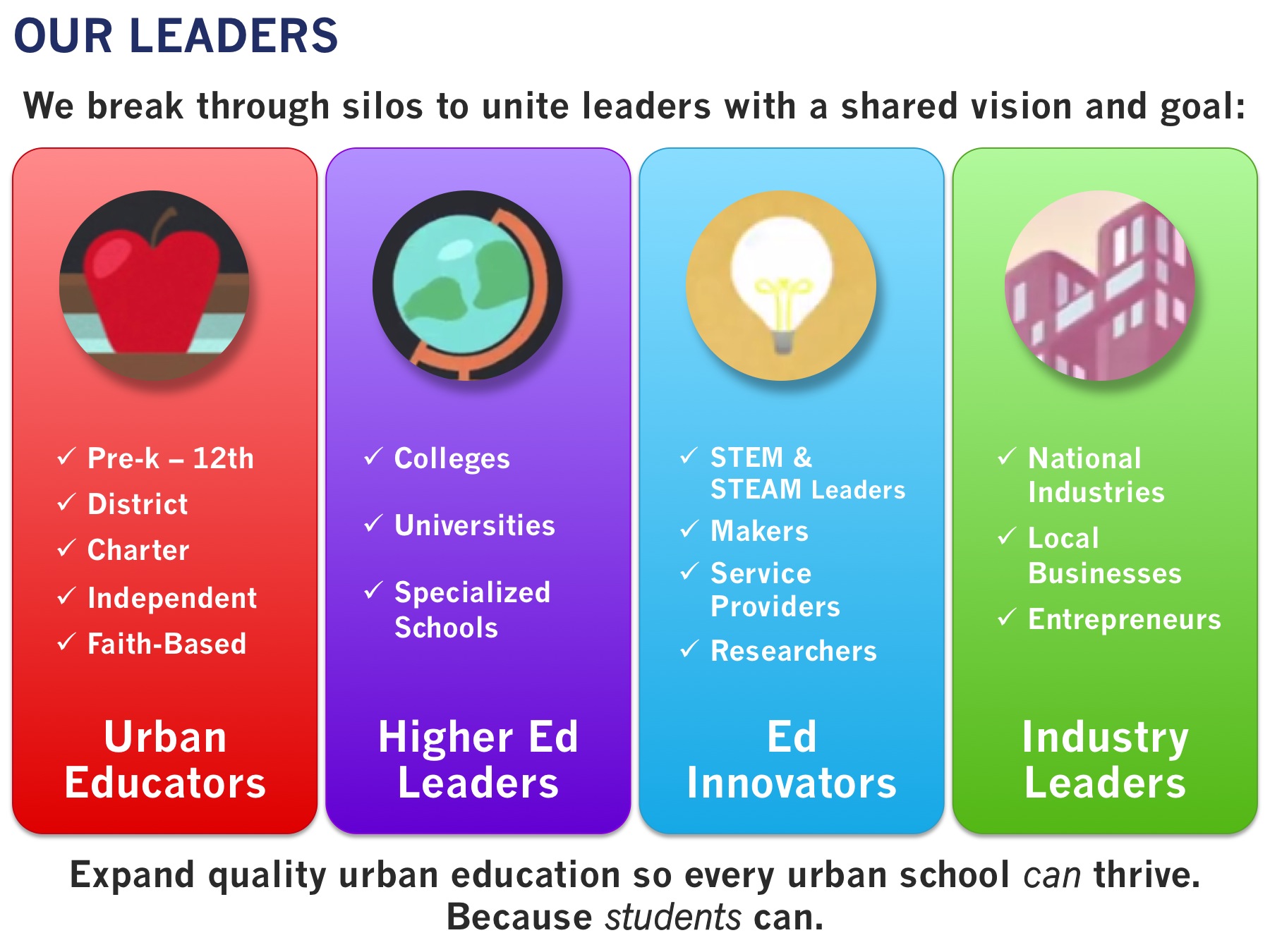For educators, every Fall is an occasion for revitalization. The start of the school year brings new beginnings and new opportunities to make a difference.
We’re head strong into this year, and I know you’re all striving to exceed expectations you’ve set for yourself. We’re doing to the same. It’s been 10 years since Schools That Can came on the scene, and I’m excited to share some highlights with you of our fruitful year.
We closed out last year with the STC 2014 Forum: Harlem // NYC (Refresh with a recap of the Forum and watch your favorite presentations again or catch one you missed) and the memorable Robert F. Kennedy Urban Education Awards, which will continue this year (nominations expected to open this November).
Will we ever forget the dignity and courage of the winning student, Marisol, and her magical words of acceptance that reflect on the value of the work you all do? You’ll get to learn more about this extraordinary young student in an upcoming video from us.
Shout Outs
We are thrilled to introduce new additions and changing roles on our team to better serve STC schools. Casey Lamb is our new National Director of Growth; long-time volunteer Jenn Husbands is our founding STC Chicago Executive Director and will help lead important STC 21st century initiatives (check out her profile in Catalyst Chicago); Kate Del Priore is now Executive Director of STC NYC; and Terri Milsap is our new STC Newark Executive Director. I’d also like to mention Steph Whited in her always amazing work as our National Director of Communications and Marketing.
We also deeply appreciate the continued dedication of our volunteers in Philadelphia, Cleveland, Chicago, L.A., Philadelphia and St. Louis, who keep STC alive in these cities, for several years strong. And a sonorous shout out to STC Milwaukee, responsible for the “most impressive progress in [Milwaukee].”
Glows
In support of our work breaking through silos to unite and connect leaders across sectors, we recently received a much appreciated grant from the Newark Charter School Fund. This support reassures are efforts to help support our schools, and we hope to see similar local support in other cities this year.
I’m excited by our early national calendar for the year:
– Our 2nd Annual STC e2e Symposium Nov 8th at Hunter College School of Education
– STC Maker Fellows pilot this Fall in NYC
– Expansion of i2 Camp Summer STEM scholarships to 3 more cities from 8 last summer
– STC 2015 National Forum at Loyola Marymount University (tentatively now the week of May 11th)
– A surprise event this June!
– Plus ongoing, more locally based programs: Roundtables, Study Tours, Cross-Sector Co-ops, and Professional Learning Communities
The achievements and possibilities are especially stirring in light of our challenge. We’ve become increasingly concerned about our nation’s education to employment crisis. STC schools are doing amazing work preparing students for college and the future, but overall only 8.2% of low-income students are graduating college, and 52% of all college graduates under 25 are unemployed or underemployed. These are harsh facts we all need to be aware of, and we can work together to do something about it.
We’re the largest network of cross-sector urban schools in the country. Our ecosystem of leaders sharing locally under the umbrella of a rich and diverse national network is an extremely valuable foundation for apolitcal grassroots progress to better equip students for pathways to prosperity (read Harvard Graduate School of Education’s report “Pathways to Prosperity: Meeting the Challenge of Preparing Young Americans for the 21st Century”.
We’ve updated our mission to better reflect our work together: Schools That Can unites leaders to expand quality urban education. We envision a world where all leaders work together to expand quality urban education.

Alongside our cross-sector network of urban schools, we engage industry leaders, higher ed leaders, and education innovators committed to improving urban education from the ground up. Together, we identify and share strategies to advance school quality and better prepare students for college and career. Then, we problem-solve and build lasting solutions on the ground.
Educators, industry leaders, and higher ed leaders, put their heads together in STC Study Groups to face challenges and plan integration of 21st century learning advancements. Formed after our 1st Annual e2e Symposium, STC Study Groups a prime example of how we’ve broken through silos, not only those isolating urban educators, but also across the entire student journey, from education to employment (e2e). They’ve inspired the STC e2e Pipeline, which transforms the traditional, disconnected journey so that industry and higher ed institutions are engaged in our students’ educations across k-12. Who best knows where the skills gap lies? And where better to work together than on the ground inside STC high-potential and high-performing schools, already disrupting the status quo in urban education?
We’ll continue to use Connections (get Connections) to keep you informed about initiatives and opportunities this year, and we’re developing other methods to improve engagement remotely. For now I urge you to deepen understanding of this critical challenge over jobs and college completion America faces and become an active, collaborative problem solver alongside Schools That Can. Undoubtedly, the solutions lie in education, and we are uniquely positioned to realize urgent student outcomes and emerge as a leader and prime role model for transforming urban education, together.
I look forward to seeing each of you throughout the year and learning with you ways we can help each other to solve these crucial challenges. With much respect,
Michael Druckman
Executive Chairman

